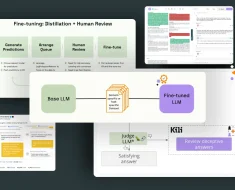AI might be key to tackling loneliness, according to Professor Tony Prescott from the University of Sheffield. In his new book, “The Psychology of Artificial Intelligence,” Prescott suggests that AI companions could offer social interaction, helping people break the cycle of loneliness and improve their social skills.
The Health Risks of Loneliness
Loneliness poses serious health risks, including a 26% higher chance of premature death. It’s also linked to heart disease, dementia, stroke, depression, and anxiety. In the UK, 3.8 million people suffer from chronic loneliness.
Similarly, a Harvard study found that 36% of US adults and 61% of young adults feel seriously lonely.
Key Facts About Loneliness and Health
- Increased Risk: Loneliness increases the risk of premature death by 26%.
- Health Issues: Linked to heart disease, dementia, stroke, depression, and anxiety.
- Prevalence: 3.8 million people in the UK suffer from chronic loneliness.
- US Statistics: 36% of adults and 61% of young adults in the US feel seriously lonely.
Can AI Fill the Human Connection Gap?
Prescott believes AI companionship could support people by providing personalized, stimulating interactions that boost self-worth and maintain or improve social skills. For instance, imagine an AI companion that remembers your favorite hobbies and asks about your day, making you feel valued and understood.
The Benefits of AI Companionship
- Personalized Interactions: AI can tailor conversations to individual interests.
- Improved Social Skills: Regular interaction with AI can help maintain or improve social skills.
- Boosted Self-Worth: Feeling heard and valued can enhance self-esteem.
However, Prescott warns of potential risks, such as excessive dependence on AI. He suggests that regulation may be necessary to ensure that AI companionship is beneficial without leading to unhealthy reliance.
The Need for Regulation
While AI companionship offers many benefits, there are concerns about users becoming overly dependent on AI. Imagine someone turning to their AI friend for every emotional need, neglecting real human connections. This could lead to a deeper sense of isolation rather than alleviating loneliness.
Potential Risks of AI Companionship
- Overdependence: Users might rely too much on AI for emotional support.
- Isolation: Excessive use of AI companions could reduce real human interactions.
- Regulatory Measures: Guidelines may be needed to prevent negative outcomes.
Understanding Human and Artificial Intelligence
As an expert in cognitive robotics, Prescott explores the link between the human brain and AI. His research aims to recreate human perception, memory, and emotion in AI, contributing to our understanding of both human and artificial intelligence.
Prescott’s Research Focus
- Human Perception: Recreating how humans perceive the world.
- Memory and Emotion: Mimicking human memory and emotional responses.
- Human-AI Interaction: Understanding the dynamics of interactions between humans and AI.
The Future of AI Companionship
Prescott concludes that the ongoing partnership between psychology and AI will unlock further insights into both natural and artificial intelligence. This collaboration can help answer key questions about human existence and our future alongside AI.
For instance, how will our relationships evolve when AI companions become a common part of daily life? How can AI be designed to enhance rather than replace human connections?
Looking Ahead
- Insights: Continued research will deepen our understanding of AI and human psychology.
- Human-AI Coexistence: Exploring how AI can enhance human lives without replacing real connections.
- Future Applications: Considering new ways AI can support mental health and social well-being.
In essence, AI companionship holds great promise for addressing loneliness, but it must be approached with caution and regulation to ensure it truly benefits society.




